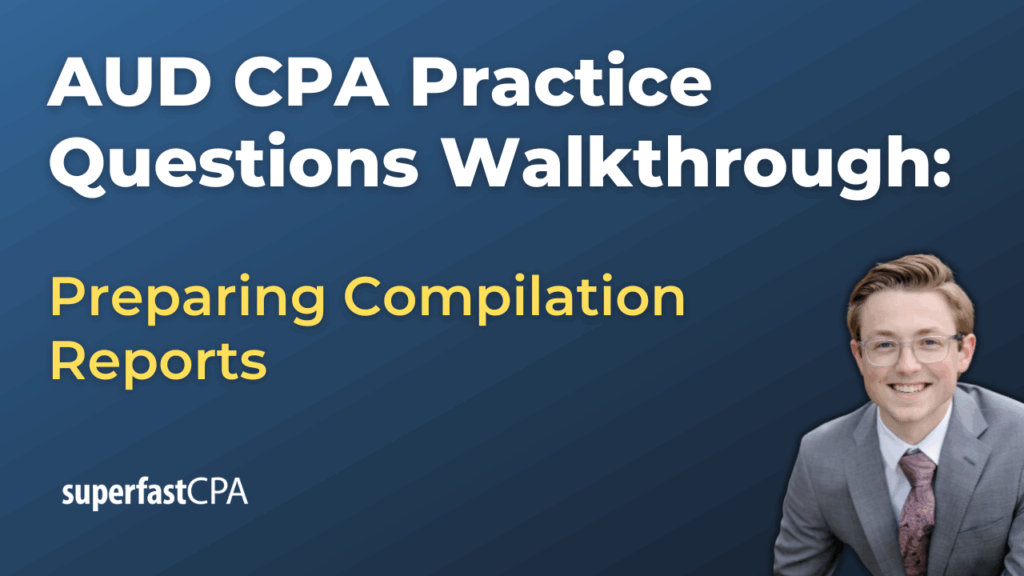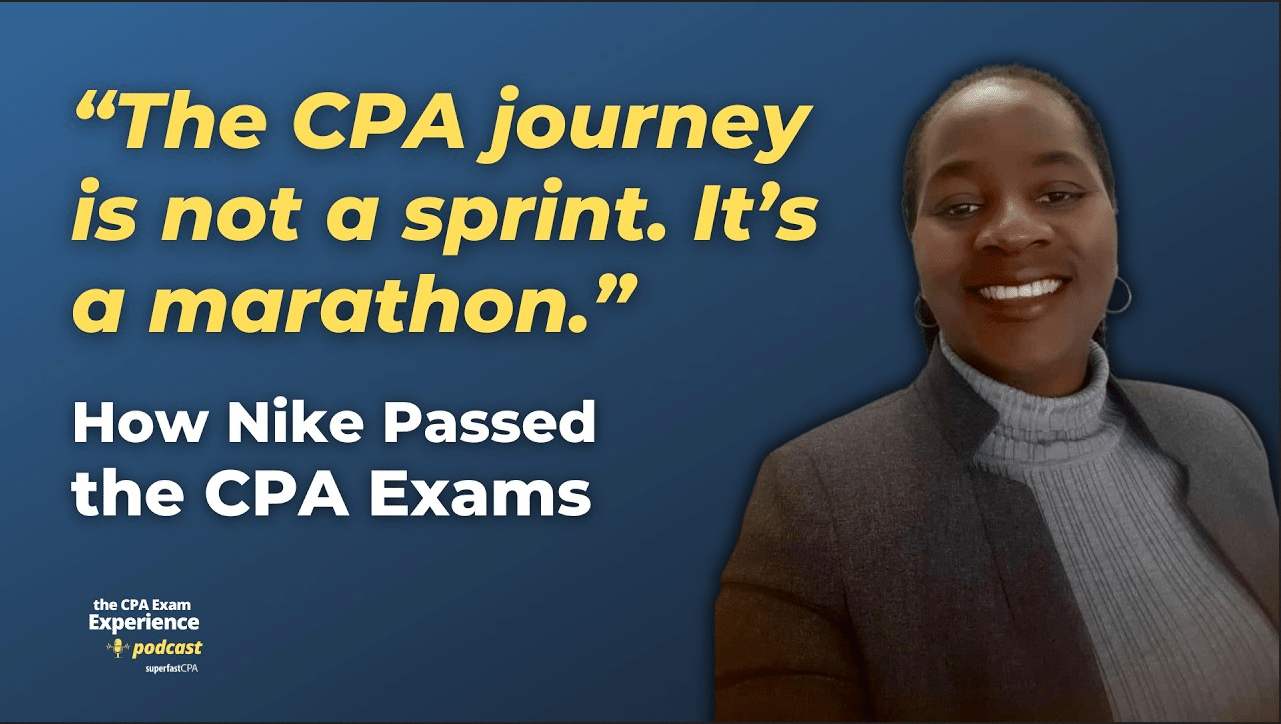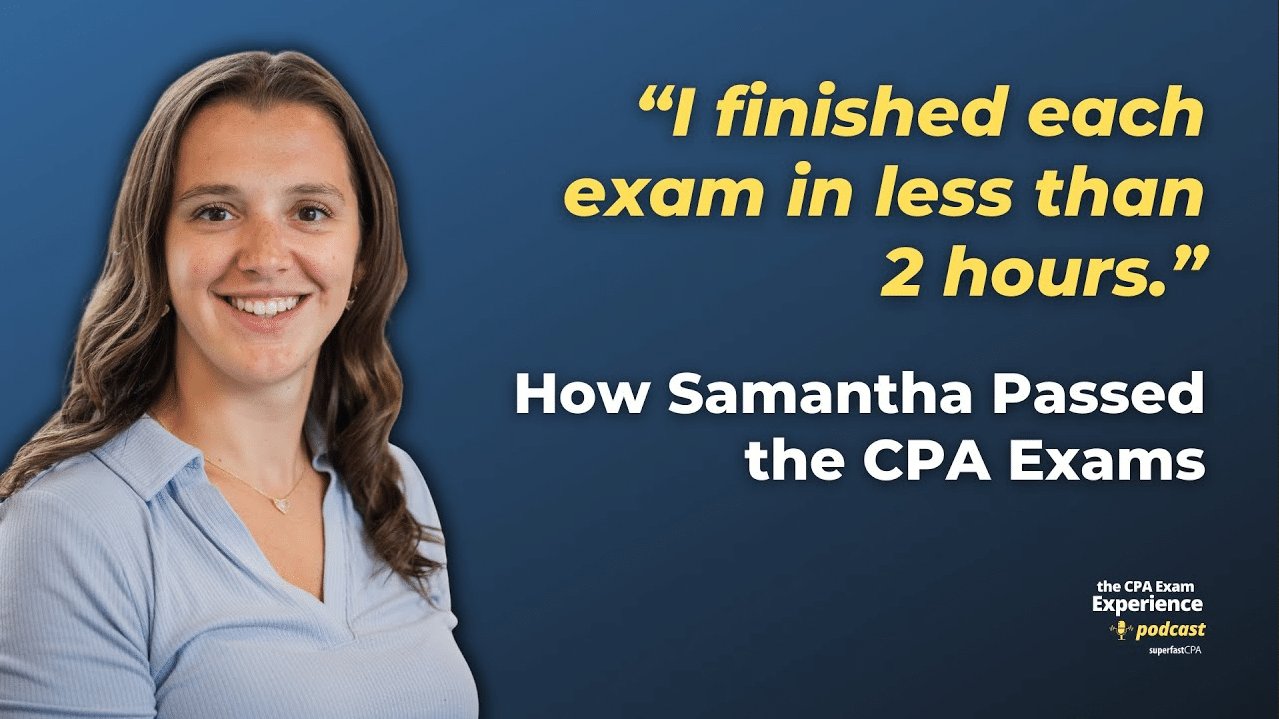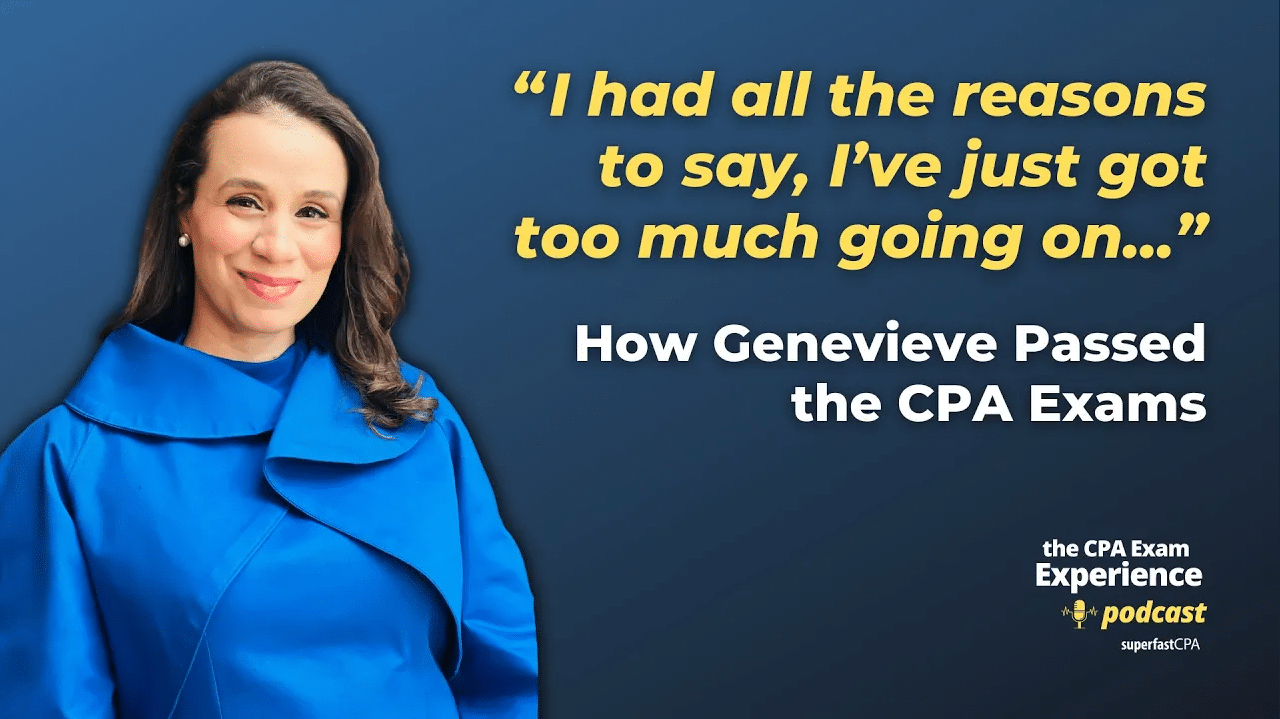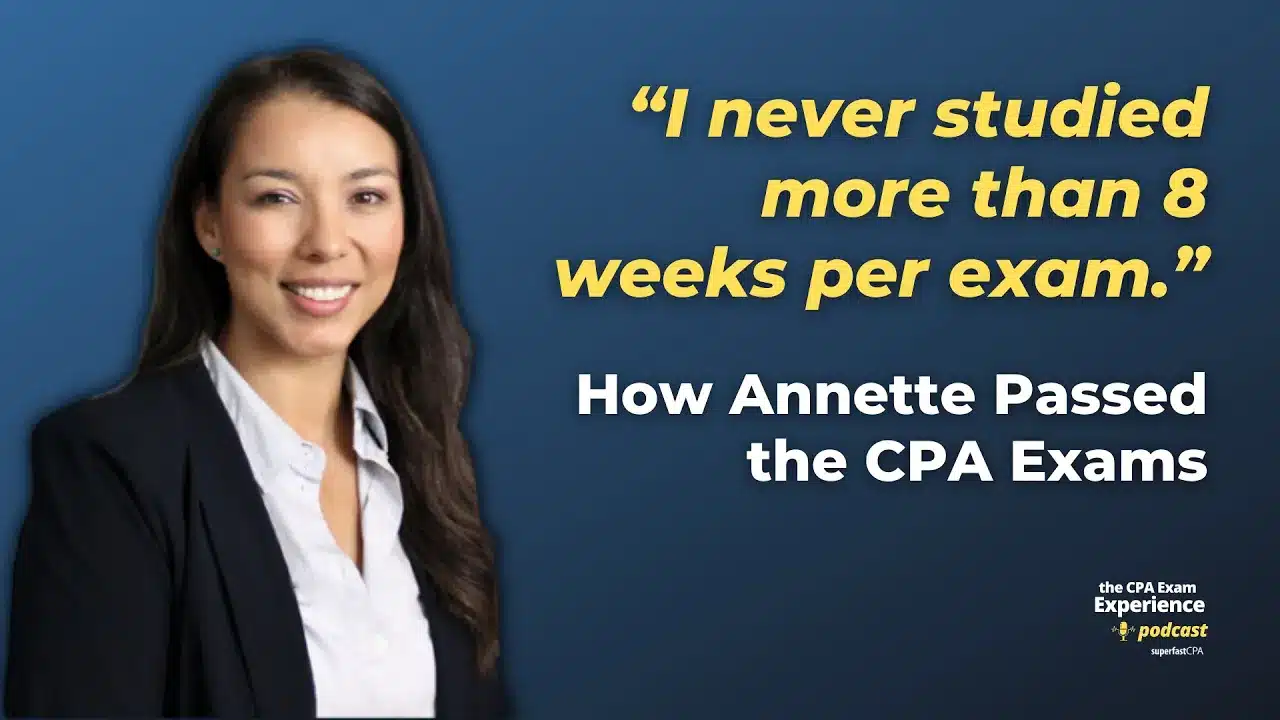In this video, we walk through 5 AUD practice questions teaching about preparing compilation reports. These questions are from AUD content area 4 on the AICPA CPA exam blueprints: Forming Conclusions and Reporting
The best way to use this video is to pause each time we get to a new question in the video, and then make your own attempt at the question before watching us go through it.
Also be sure to watch one of our free webinars on the 6 “key ingredients” to an extremely effective & efficient CPA study process here…
Preparing Compilation Reports
A compilation engagement is one of the most basic services that a CPA can perform under SSARS (Statements on Standards for Accounting and Review Services). In these engagements, the accountant helps prepare a company’s financial statements but offers no opinion, assurance, or verification. Understanding how these engagements are reported—and what responsibilities fall on the accountant—is key to mastering this topic for the CPA exam.
Let’s break down the main things you need to know using five core categories.
No Assurance and Limited Procedures
The main thing to remember: a compilation provides no assurance.
In a compilation, the accountant does not audit or review the financials and is not required to verify the accuracy of the information provided. However, the accountant must:
- Understand the engagement before accepting it.
- Read the financial statements to see if they appear free from obvious material misstatements.
For example, if a company shows negative cash flow but no corresponding financing activity, that might be an obvious issue the accountant needs to address before completing the report.
The accountant also doesn’t have to evaluate internal controls or make inquiries.
Required Elements in the Compilation Report
A compilation report must include several key statements:
- That the financial statements were compiled in accordance with SSARS.
- That the accountant has not audited or reviewed the statements.
- That no assurance is provided.
- That management is responsible for the financial statements.
In addition:
- The report should be dated on the day the compilation is completed.
- The report implies that substantially all required disclosures are included unless noted otherwise.
- If the accountant is not independent, that lack of independence must be disclosed.
Example: “We are not independent with respect to ABC Company” must be stated clearly if independence does not exist.
Reporting on Projections
When compiling projected financial statements (as opposed to historical ones), special reporting considerations apply:
- The report must include a statement that actual results will differ from the projections.
- It should also include a paragraph describing the limitations of the projection’s usefulness.
Importantly, the accountant does not have to assess whether the assumptions used are reasonable. For instance, if a client projects a 50% sales increase based on expansion plans, the accountant doesn’t evaluate whether that assumption makes sense—just compiles the data as provided.
Dealing with Misstatements or GAAP Departures
If the accountant believes the financial statements contain a material misstatement:
- They must request corrections from management.
- If management refuses, the accountant should withdraw from the engagement.
If there is a known departure from GAAP:
- The report must include a separate paragraph describing the departure and its effects.
- If disclosure is not adequate even with modification, withdrawal is required.
Example: If management refuses to disclose a major lawsuit that affects financial position, and the omission is material, the accountant should either modify the report or walk away from the engagement.
Documentation and Required Communications
Even though no assurance is provided, there are still documentation requirements for compilation engagements. These include:
- A signed engagement letter.
- Notes about significant issues affecting the financial statements.
- Any written communications with management about fraud, if such matters came up.
While a review of internal control or confirmations of balances are not part of the process, keeping clear records is still necessary for professional standards.
Final Takeaway
The CPA candidate should be able to recognize that a compilation engagement:
- Is low in scope,
- Involves no assurance,
- Has specific language and disclosures required in the report,
- Requires attention to obvious errors,
- And must be properly documented—even though no testing or verification is done.
Understanding these factors helps you not just pass the exam but also grasp how this service fits into the spectrum of accounting services.

